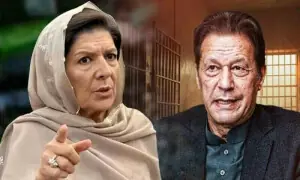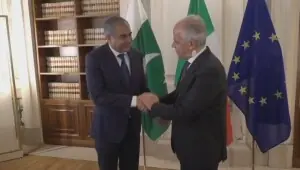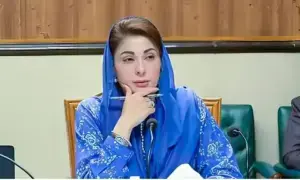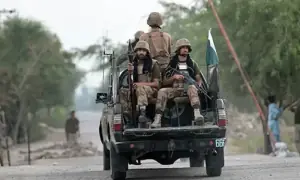Debacle of 1971
5 min readThe Quaid’s view of the respective relevance of Urdu and Bengali were obviously shaped by two factors: First, Urdu as a lingua franca was spoken far more widely across the northern parts of South Asia (including parts of India, such as Bihar, UP, etc.), and particularly in parts of West Pakistan could serve as a binding strength for a vulnerable new nation-state. Second, to promote Urdu as lingua franca for intercommunication between the various provinces of the state. Moreover, Karachi being more developed and having adequate infrastructure to accommodate and smoothly run the nascent country was more plausible compared to Dhakka at that time.
The Assertion that Bengalis were deprived of influential political and bureaucratic positions is also flawed as notable politicians having served as Prime ministers and other political assignments hailed from Bengal, these include Khwaja Nazim Uddin, Mohammad Ali Bogra, Hussain Shaheed Suhrwardy, Sikander Mirza etc all hailed from Bengal. Moreover, despite being in less no. in Military in 1948 a large no of them were inducted till 1970 i.e 300 above officers including MM Alam, Sarfaraz Ahmed Rafiqui, etc.
The Pak Army, which has a culture of professionalism and discipline, does not engage in mass killings of civilians, as evidenced by its operations in the War on Terror. The Pak Army fought bravely and honorably in the 1971 war, despite facing enormous challenges and disadvantages. The logistical problems faced by West Pakistan in supplying and reinforcing its troops in East Pakistan were immense, given the distance and the hostile Indian territory in between. The Pakistani troops also had to contend with the enemy’s superiority in both numbers and firepower, as well as the insurgency and sabotage by the Awami League and its supporters. The Pak Army resisted the Indian aggression and defended the integrity and sovereignty of Pakistan with courage and sacrifice. The allegation of the Genocide of three million Bengalis is a gross exaggeration and distortion of the facts, and a blatant attempt to vilify the Pak Army and Pakistan.
The Awami League and India concocted Operation Searchlight as a cover for their separatist scheme, while Shaikh Mujib incited his adherents to wreck the infrastructure and plunder the resources of the country, compelling the intervention of the Pak army to reestablish order. Furthermore, for nearly three decades, the Western press remained silent about the rapes perpetrated by Indian troops and rebel militia. The number of Pakistani soldiers was inflated. The actual number was 34,000, with 11,000 police, rangers, scouts, and militia. This made the total number of combatants 45,000.
In a published letter, RAW officer R.K. Yadav made a startling revelation that India’s prime minister Indira Gandhi, parliament, RAW and armed forces acted in tandem to dismember Pakistan’s eastern wing. The confessions in his letter are corroborated by B. Raman’s book The Kaoboys of R&AW. He reminds `Indian parliament passed resolution on March 31, 1971 tosupport insurgency. Indira Gandhi had then confided with Kao that in case Mujib was prevented from ruling Pakistan, she would liberate East Pakistan from the clutches of the military junta. ‘Not only intelligence officers but also officers of armed forces are employed to carry out subversion and sabotage inside Pakistan.’
The truth about the casualties, strength of the Pak forces, and several other aspects is well exposed by Sarmila Bose in his book ‘DEAD RECKONING - Memories of the 1971 Bangladesh War’. Bose says, ‘Many facts had been exaggerated, fabricated, distorted or concealed. Many people in responsible positions had repeated unsupported assertions without a thought; some people seemed to know that the nationalist mythologies were false and yet had done nothing to inform the public. Mujeeb ur Rehman’s electoral victory did not mean that people wanted to break away from Pakistan, but rather that they felt neglected by the government. However, not everyone supported Mujeeb, as more than 40 percent of the population did not vote.
She went on to rejects the Indian and Bangladeshi allegation that three million Bengalis were killed by the Pakistani Army, calling it a “huge lie”. She estimates the death toll to be between 50,000 and 100,000, and argues that numbers can be manipulated for political purposes, as in the case of the Holocaust.
According to Archer Blood, an American career diplomat, “Indian soil was made available for training camps, hospitals and supply depots for the Mukti Bahini (freedom fighters)” and the Mukti Bahini had a “safe haven to which it could retire for rest, food, medical supplies and weapons”. According to Yasmin Saikia, thousands of Bihari women were raped and tortured by the Mukti Bahini (Women, War and the Making of Bangladesh, page 41).
India’s role in fomenting insurgency is evident. India has disseminated many myths to besmirch Pakistan’s image. Some of these myths have been debunked by Sarmila Bose and Praveen Swami. India officially sanctioned the invasion of East Pakistan. Yet the United Nations failed to declare it as an aggressor. The situation in occupied Kashmir is direr than it was in East Pakistan (custodial deaths, fake encounters, rapes, arson, and so on). Even children and women are detained and hidden during cordon-and-search operations. Doesn’t this situation warrant Pakistan’s intervention?
The real genocide was in the Bihari community, carried out by Mukti Bahni; more than 500,000 people were mercilessly killed. Those dead bodies were attributed to Pakistan armed forces by Indian and Mukti Bahni. The Urdu-speaking community of Beharis, even today, is stateless and lives in shallow ghettos.
A twisted media campaign then defamed and isolated Pakistan internationally. Indra Gandhi used the democracy card to mislead the US and Western world that Pakistan was under brutal military dictatorship. And for the Muslim countries, which did not have elected governments, she used the so-called genocide card. She used her electronic and print media to exaggerate stories of the mass killing of men, women, and children in East Pakistan by the Pakistani army.
BJP-led India continues to hurt Pakistan through proxies and twisted media campaigns against the people of Balochistan, the former FATA, and GB. It is time we should not let our youngsters be indoctrinated against the ideology and spirit of Pakistan and thwart the evil design of our enemies. We sincerely appreciate the sacrifices of our fallen soldiers (shuhada) who got killed while fighting in a most difficult war of 1971.
It is a bitter fact that the Muslim League could not fulfil the aspirations of the people of East Bengal. India cleverly exploited the language crisis, which erupted soon after independence. Pakistan was dismembered much before December 16, 1971. The eastern wing actually got broken on the day when no political party in West Pakistan won a seat in East Pakistan and vice versa.
For the latest news, follow us on Twitter @Aaj_Urdu. We are also on Facebook, Instagram and YouTube.




















Comments are closed on this story.